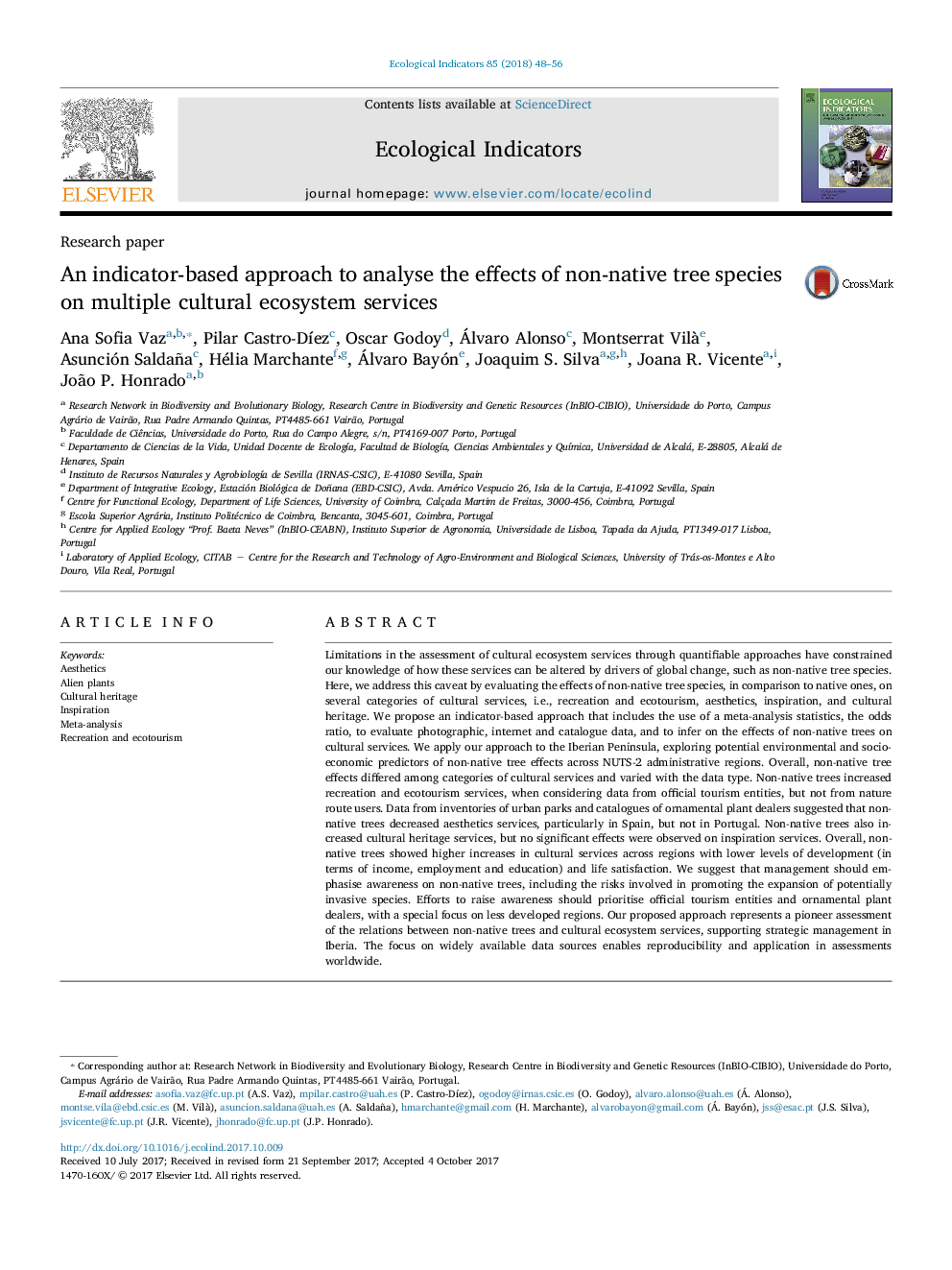Limitations in the assessment of cultural ecosystem services through quantifiable approaches have constrained our knowledge of how these services can be altered by drivers of global change, such as non-native tree species. Here, we address this caveat by evaluating the effects of non-native tree species, in comparison to native ones, on several categories of cultural services, i.e., recreation and ecotourism, aesthetics, inspiration, and cultural heritage. We propose an indicator-based approach that includes the use of a meta-analysis statistics, the odds ratio, to evaluate photographic, internet and catalogue data, and to infer on the effects of non-native trees on cultural services. We apply our approach to the Iberian Peninsula, exploring potential environmental and socio-economic predictors of non-native tree effects across NUTS-2 administrative regions. Overall, non-native tree effects differed among categories of cultural services and varied with the data type. Non-native trees increased recreation and ecotourism services, when considering data from official tourism entities, but not from nature route users. Data from inventories of urban parks and catalogues of ornamental plant dealers suggested that non-native trees decreased aesthetics services, particularly in Spain, but not in Portugal. Non-native trees also increased cultural heritage services, but no significant effects were observed on inspiration services. Overall, non-native trees showed higher increases in cultural services across regions with lower levels of development (in terms of income, employment and education) and life satisfaction. We suggest that management should emphasise awareness on non-native trees, including the risks involved in promoting the expansion of potentially invasive species. Efforts to raise awareness should prioritise official tourism entities and ornamental plant dealers, with a special focus on less developed regions. Our proposed approach represents a pioneer assessment of the relations between non-native trees and cultural ecosystem services, supporting strategic management in Iberia. The focus on widely available data sources enables reproducibility and application in assessments worldwide.


